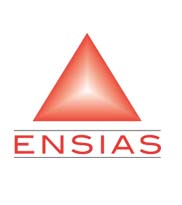- Accueil
-
L'Ecole
-
FORMATIONS
-
FORMATION INGENIEUR
-
Nouvelles filières offertes
- Ingénierie Intélligence Artificielle (2IA)
- Smart Supply Chain & Logistics (2SCL)
- Business Intelligence & Analytics (BI&A)
- Génie de la Data (GD)
- Génie Logiciel (GL)
- Ingénierie Digitale pour la Finance (IDF)
- Smart System Engineering (SSE)
- Data and Software Sciences (D2S)
- Cybersécurité, Cloud et Informatique Mobile (CSCC)
- REGLEMENT DES ETUDES DE L’ENSIAS CYCLE INGENIEUR
-
Nouvelles filières offertes
-
FORMATION INGENIEUR
- FORMATION CONTINUE
-
Recherche
- INTERNATIONAL
- ENTREPRISES
- VIE ESTUDIANTINE
- BIBLIOTHEQUE
LES DERNIÈRES INFORMATIONS
On the value of parameter tuning in heterogeneous ensembles effort estimation
| Titre | On the value of parameter tuning in heterogeneous ensembles effort estimation |
| Publication Type | Journal Article |
| Year of Publication | 2017 |
| Authors | Hosni, M, Idri, A, Abran, A, Nassif, AB |
| Journal | Soft Computing |
| Pagination | 1-34 |
| Abstract | Accurate estimation of software development effort estimation (SDEE) is fundamental for efficient management of software development projects as it assists software managers to efficiently manage their human resources. Over the last four decades, while software engineering researchers have used several effort estimation techniques, including those based on statistical and machine learning methods, no consensus has been reached on the technique that can perform best in all circumstances. To tackle this challenge, Ensemble Effort Estimation, which predicts software development effort by combining more than one solo estimation technique, has recently been investigated. In this paper, heterogeneous ensembles based on four well-known machine learning techniques (K-nearest neighbor, support vector regression, multilayer perceptron and decision trees) were developed and evaluated by investigating the impact of parameter values of the ensemble members on estimation accuracy. In particular, this paper evaluates whether setting ensemble parameters using two optimization techniques (e.g., grid search optimization and particle swarm) permits more accurate estimates of SDEE. The heterogeneous ensembles of this study were built using three combination rules (mean, median and inverse ranked weighted mean) over seven datasets. The results obtained suggest that: (1) Optimized single techniques using grid search or particle swarm optimization provide more accurate estimation; (2) in general ensembles achieve higher accuracy than their single techniques whatever the optimization technique used, even though ensembles do not dominate over all single techniques; (3) heterogeneous ensembles based on optimized single techniques provide more accurate estimation; and (4) generally, particle swarm optimization and grid search techniques generate ensembles with the same predictive capability. © 2017 Springer-Verlag GmbH Germany, part of Springer Nature |
| URL | https://www.scopus.com/inward/record.uri?eid=2-s2.0-85035807309&doi=10.1007%2fs00500-017-2945-4&partnerID=40&md5=83d094f56b80a21295cf4230621f445d |
| DOI | 10.1007/s00500-017-2945-4 |
Revues:
LIENS UTILES
Localisation
Contactez-nous
ENSIAS
 Avenue Mohammed Ben Abdallah Regragui, Madinat Al Irfane, BP 713, Agdal Rabat, Maroc
Avenue Mohammed Ben Abdallah Regragui, Madinat Al Irfane, BP 713, Agdal Rabat, Maroc
![]() Télécopie : (+212) 5 37 68 60 78
Télécopie : (+212) 5 37 68 60 78
![]() Secrétariat de direction : 06 61 48 10 97
Secrétariat de direction : 06 61 48 10 97
Secrétariat général : 06 61 34 09 27
Service des affaires financières : 06 61 44 76 79
Service des affaires estudiantines : 06 62 77 10 17 / n.mhirich@um5s.net.ma
CEDOC ST2I : 06 66 39 75 16
Résidences : 06 61 82 89 77
- Compteur de visiteurs:634,830
Education - This is a contributing Drupal Theme
Design by WeebPal.
Design by WeebPal.



































